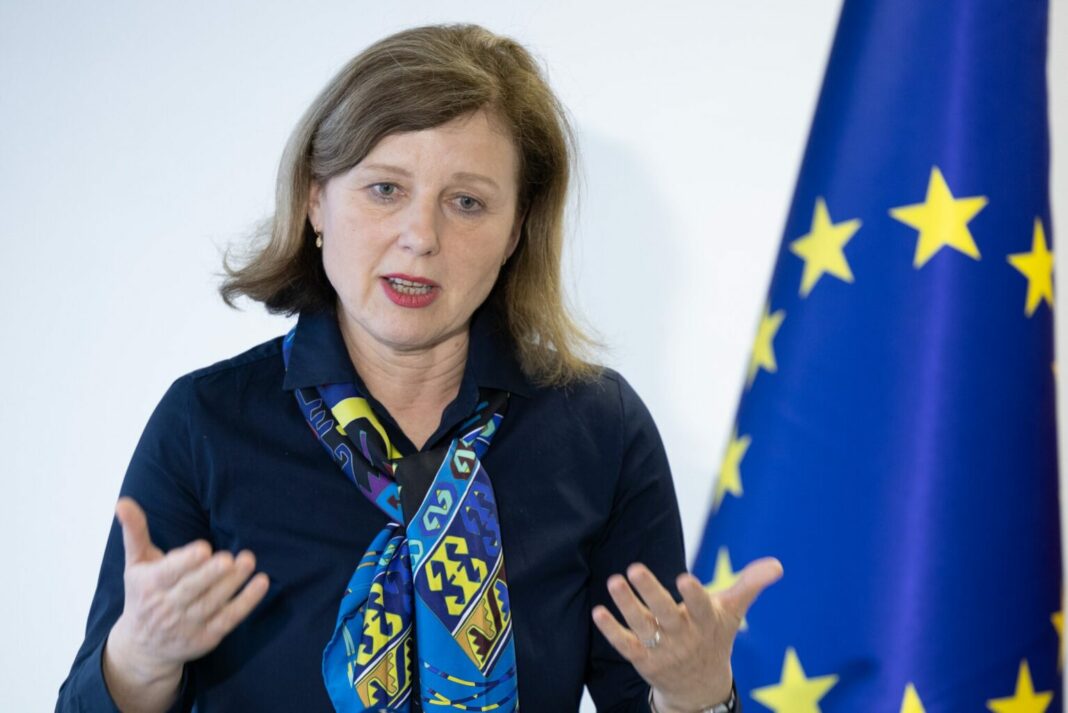By: Sara Kovač (Nova24tv.si)
Following her scandalous visit to the Constitutional Court while the Court was in the process of deciding on the Radio-Television Slovenia Act, and following the allegations of her pressuring the Court, European Commissioner Věra Jourová has become a bit more cautious. In an interview with the Slovenian Press Agency (STA), she refused to comment on the current developments at the national media outlet Radio Television Slovenia (RTVS), as the Constitutional Court is still deciding on the case.
The unusual visit of the Vice-President of the European Commission, Věra Jourová, upset the public, as she even visited the Constitutional Court while it was ruling on the Radio-Television Slovenia Act, which was adopted by Golob’s coalition with the aim of taking over the public broadcaster. At that time, it was already known that the law was so constitutionally controversial that serious lawyers and judges would not allow it to pass through the constitutional sieve. But she came to the Court anyway and even met with its President, Matej Accetto. To date, the content of the talks has not been clarified by her.
However, commissioners are generally not supposed to interfere in ongoing cases, nor do they visit the Constitutional Courts of the EU Member States, as a rule. Jourová has apparently realised this herself after numerous pressures and warnings, as she suddenly no longer comments on open cases. In an interview with the Slovenian Press Agency, she pointed out that she does not want to comment on current events at Radio Television Slovenia (RTVS).
Slovenia is not the best example of media governance
She also said that “Slovenia is a good example on which we can show that things are not very positive.” According to her, measures to stabilise the situation regarding public media include the European Media Freedom Act, presented by the European Commission in September last year. In the area of funding, the Commission’s proposal foresees that public media funding must be sufficient and predictable, she said.
“Funding must be transparent and not used as a way of influencing editorial content,” she said in a conversation ahead of World Press Freedom Day, which we celebrate on the 3rd of May.

